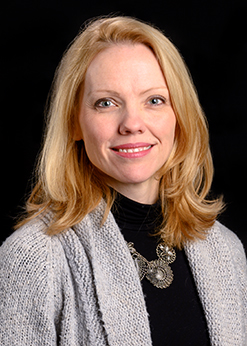Start with Why: PMG’s WHY and How That Trends to our Client’s Why
“People don’t buy what you do; they buy why you do it. And what you do simply proves what you believe.” – Simon Sinek
I recently read Simon Sinek’s book, Start with Why. The concept that resonated most with me from the book was the fact that your internal and external customers (employees and clients) buy and become loyal not based on what you do or how you do it, but on WHY you do what you do. Here is a quick 3-minute video that explains the concept. What resonated so much to me is that our why is the reason we started PMG fourteen years ago. PMG’s Why is to further the mission (or the Why) of each of the organizations we serve. Each organization’s Why is PMG’s Why to push forward. It is what drives each of our team members and inspires us to work as hard as we do. When we are approached with a new organization to work with, one of the first things we consider is if we as a team are passionate about the organization’s Why. It is so important to me that we believe in what each of our organizations are striving to accomplish. This creates the passion behind the Why for our team and makes each of team member loyal not only to the organization, but to PMG and the work we are striving to accomplish.
While 2021 was challenging in many ways, each of the organizations we manage made strides toward their mission thanks to the strategic insight and countless hours from volunteers. I wanted to share that progress and some of the new programs being implemented with all of our clients. We are honored to have the opportunity to work with each of you and look forward to continuing to grow your mission in 2022!
PMG CLIENTS
American Board of Pediatric Dentistry (ABPD)
Why: Every child, every adolescent, and every individual with special needs deserves quality care.
How ABPD Achieved Their Why in 2021:
- ABPD launched a research grant program to fund research annually in areas relevant to assessment, performance, and quality improvement, continuing professional development, and initial and continuing board certification in dentistry. Not only will help ABPD understand how board certification impacts the profession, but how it improves patient care.
- ABPD formed a task force to assess the validity of incorporating a longitudinal assessment program in ABPD’s continuing certification process. Evidence from medical certification boards has found the assessment method geared for adult learning to be effective and an enjoyable learning experience. Planning is well underway with a target launch of a pilot program in 2023.
American College of Neuropsychopharmacology (ACNP)
Why: To contribute to alleviating human suffering by advancing the dissemination of knowledge related to the biology of the brain as well as the biology, prevention, and treatment of brain disorders; by promoting emergence of pioneering young scientists as leaders within our College and within their fields of science; and by facilitating the collaboration among relevant organizations and agencies.
How ACNP Achieved Their Why in 2021:
- The College also started the URM Near Peer Mentorship Program in 2021. This pilot program will provide mentorship support from an ACNP member mentor to under-represented minority scientists who plan to enter research fields in neuropsychopharmacology. The program will provide education on topics such as career skills, goal setting, negotiating, time management, starting a lab, lab management, negotiating positions, career life balance, and publishing. This is a year-long program to include remote, long-distance virtual mentoring, training opportunities, and an annual in-person half day mentorship program just prior to the 2022 ACNP Annual Meeting. The program will be managed in partnership with training experts from the Center for the Improvement for Mentored Experiences in Research (CIMER).
- The Career Development Session during the 2021 Annual Meeting was titled, ‘Climbing out of the Career Chasm Caused by COVID.’ The Career Development Session focused on strategies, principles, and practical tips for scientists whose career trajectories have been affected by the COVID-19 pandemic. The panelists provided expertise in grant review/administration (federal and/or foundational), in tenure/promotion and hiring, and in scientific publishing, all of whom together offered a wealth of advice and expertise.
American Psychopathological Association (APPA)
Why: The APPA helps mental health practitioners, scientists and students gain access to the latest psychopathological information and methodology to help humans affected by mental health disorders.
How APPA Achieved Their Why in 2021:
- The APPA held their annual meeting virtually to focus on research dissemination pertaining to what is unique in the mental health components of the COVID-19 pandemic, including the biology of brain effects, the mental health of survivors of acute respiratory distress syndrome, and the effects of social isolation on domestic violence and PTSD.
- APPA continued offering mentorship and training workshops devoted to educating early career investigators on topics of grant funding, collaborations, and fellowship and job searches.
American Society of Clinical Psychopharmacology (ASCP)
Why: ASCP’s educational opportunities advance the clinical psychopharmacology community by providing state-of-the-art psychopharmacology update meetings, publishing peer-reviewed curricula, and hosting an annual meeting that strengthens personal knowledge base, allows for collaboration with colleagues and experts in the field, and disseminates cutting-edge research that furthers the science of clinical psychopharmacology and ultimately helps reduce the stigma surrounding mental health.
How ASCP Achieved Their Why in 2021:
- ASCP finalized their Strategic Plan which will be used to help ASCP become the leading source for psychopharmacology.
- ASCP redesigned the membership categories to include a broader range of members in order to diversify membership.
- ASCP continues to meet with similar organizations to discuss ways ASCP can collaborate with and further raise awareness of ASCP and its Why.
American Psychosocial Oncology Society (APOS)
Why: APOS is an inclusive and welcoming professional home that empowers a workforce of psycho-social oncology professionals to meet the need of those affected by cancer through the development and dissemination of evidence-based education and resources, mentorship, and the creation of pathways to leadership.
How APOS Achieved Their Why in 2021:
- Created a Health Equity Taskforce with a focused Director on the board and a Health Equity Scholarship program.
- Began a “Psycho-social Oncology consult in your pocket” guide funded by Pfizer. This project will create an invaluable quick access resource to our membership while diversifying revenue within APOS.
- Completed the Core Curriculum for APOS. This has been a three-year project that addresses a vast array of treatment techniques and best practices across the lifespan. This curriculum can be used both by individuals and by institutions as a key component of their training programs and department development plans. To accommodate the curriculum, a brand-new Learning Management System has been established. The LMS will also host the established webinar program.
American Professional Society of ADHD and Related Disorders (APSARD)
Why: To be the main North American research and educational community for all professionals that work in the field of ADHD.
How APSARD Achieved Their Why in 2021:
- Revamped APSARD’s website for functionality, advertising space, future educational content, and to prepare for added member benefits.
- Developed and launched the Special Interest Group program with five inaugural Special Interests Groups including College Students & ADHD, ADHD & Substance Use Disorder, Pediatrics-Psychiatry Interface, Women & Girls with ADHD and Technology & ADHD.
- Began steps towards the formation of a career center on the website, a quarterly newsletter, targeted advertising campaigns, and live annual conference reporting.
Association for Research in Otolaryngology (ARO)
Why: ARO supports global research and medical professionals across the career span who want to further hearing research and impact those with hearing loss by disseminating research, co-learning, leading in inclusive best practices, and by increasing access to cutting edge research.
How ARO Achieved Their Why in 2021:
- Implemented monthly Diversity and Minority Affairs coffee hours to discuss timely topics as they relate to working in labs/at institutions.
- The ARO International Committee started a seminar series focusing on having speakers from outside the U.S.
- The ARO committee drafted and implemented inclusive practices to take place at any ARO virtual or in-person event (closed captioning speakers, clear masks for lip reading, etc)
Case Management Society of America (CMSA)
Why: CMSA is focused on improving patient health outcomes and reducing/eliminating fragmentation within the healthcare system.
How CMSA Achieved Their Why in 2021:
- In 2021, CMSA created additional tools to support better outcomes including the Case Management Adherence Guide 2020 and securing a grant to improve education around C.Diff.
- CMSA continued offering the Integrated Care Management training program, that works to reduce fragmentation with an inclusive and all-encompassing approach to care.
College for Problems of Drug Dependence (CPDD)
Why: CPDD exists to create a world where substance use disorder is no longer a cause of stigma and human suffering.
How CPDD Achieved Their Why in 2021:
- CPDD developed an extensive new strategic plan focusing on the educational offerings of emerging preclinical and human research advances, to increase diversity, inclusion, and equity of all College aspects, expand advocacy reach and public education, and foster communication between academia, government agencies, and private industries.
- CPDD launched their first webinar offerings focusing on COVID-19 related research, the surge in stimulant-related overdoses, and the importance of racial and social justice in addiction research.
- CPDD developed an in-depth set of strategies to launch a new lay public website to share the latest advances in substance use disorder related research.
International Society of Interpersonal Psychotherapy (ISIPT)
Why: ISIPT is a multidisciplinary, non-commercial, international organization committed to the advancement of interpersonal psychotherapy (IPT) through scientific research, training and dissemination. The ISIPT sees the broad application of IPT by therapists worldwide as one of the valuable means for alleviating human suffering due to mental disorders.
How ISIPT Achieved Their Why in 2021:
- ISIPT is building its international community by developing a chapters to further its outreach and knowledge of IPT.
- Created new certification programs which provide consistent and rigorous evaluation of Therapists, Trainers and Supervisors of IPT.
International Society of Psychiatric Genetics (ISPG)
Why: ISPG is a diverse global community committed to improving mental health by advancing & translating research in psychiatric genetics through collaboration, communication, and education.
How ISPG Achieved Their Why in 2021:
- ISPG created and deployed a bold, new strategic plan and conducted a leadership & structural realignment of committees.
- ISPG established a sustainable financial growth plans to help our global community improve mental health through psychiatric genetic research but may be lacking financial resources or open access.
International Marcé Society for Perinatal Mental Health (Marcé)
Why: Our communications and initiatives support, connect, and educate professional care providers and all advocates who seek to improve perinatal mental health for mothers, partners, and their children by sharing best practices, research, and professional relationships across the international community.
How Marcé Achieved Their Why in 2021:
- The organization focused on Special Interest Groupswhich gather those focused on key initiatives within perinatal mental health such as loss, support for fathers, and prevention to share their best practices, research, and resources.
- Marcé supported our early career members with a Mentorship Program which became even more critical during the isolation and disruption of the pandemic.
- The organization explored Emerging Regional Groups in under-resourced areas such as Eastern Europe, India, and the Middle East.
- Marcé piloted a Bursary Program to provide membership at no cost to colleagues with constrained financial resources.
International Union of Basic and Clinical Pharmacology (IUPHAR)
Why: IUPHAR supports pharmacology research, education and their application to improve global health.
How IUPHAR Achieved Their Why in 2021:
- IUPHAR launched a new bi-monthly newsletter for all affiliates and subscribers focusing on the latest research. The first issue centered around the new Omicron variant of Covid-19.
- IUPHAR sponsored, promoted, and participated in more member society events than in prior years thanks to the cost-saving nature of virtual meetings, including the first All-Africa Congress to which the idea has shared to other global regions.
- IUPHAR overhauled the governance structure establishing new statutes, operating procedures, and updated sections and committees to focus more on the global dissemination of the latest pharmacologic research.
Midwest Nursing Research Society (MNRS)
Why: Improve the overall care and health outcomes for patients and their caregivers through nursing research and practice.
How MNRS Achieved Their Why in 2021:
- MNRS developed a diversity task group to ensure nursing researchers and providers are as diverse as the population they serve.
- Coordinated outreach to support research from the generation of new knowledge to translation to implementation by:
- partnering with advance practice nursing groups including the National Organization for Nursing Practice Faculty,
- recruiting DNPs and advanced practice nurses in the clinical setting as MNRS members,
- building a keyword table for membership to search partners in research and implementation,
- changing the name of Research Interest Groups to Research & Implementation Interest Groups to incorporate the balance of generation of new knowledge to practice, and
- working with CVS minute clinic to develop an exemplar focused on research to implementation partnership development for a webinar series or professional white paper.
Organization of Teratology Information Specialists – Mother to Baby (OTIS)
Why: MotherToBaby, the public information service of OTIS, is dedicated to providing evidence-based information to parents, health professionals, and the general public about medications and other exposures during pregnancy and breastfeeding in order to reduce the risk of preventable birth defects and other disabilities by educating all of these groups about specific agents of concern. OTIS works with like-minded stakeholders so that we can expand our reach and network. PMG serves as the conduit to coordinating efforts for OTIS/MotherToBaby, HRSA, and stakeholder partners to bring everyone together to share information on exposure topics.
How OTIS Achieved Their Why in 2021:
- OTIS updated all fact sheets which answer frequently asked questions about many common exposures during pregnancy and breastfeeding, including medications, recreational substances, cosmetic treatments, health conditions, infections, vaccines, and more to be listed on the National Library of Medicine which will have a much greater reach to healthcare providers.
- Through funding obtained by the CDC through the American Academy of Pediatrics, OTIS was able to increase the volume of chats (questions from patients or healthcare providers) we are able to respond to during the week.
Schizophrenia International Research Society (SIRS)
Why: The Schizophrenia International Research Society’s vision is to advance the understanding, research, prevention and treatment of schizophrenia and related disorders until they are no longer a cause of human suffering.
How SIRS Achieved Their Why in 2021:
- SIRS created Making a Difference stories to highlight the importance of the work done by our members and to explain the research to the lay public.
- The SIRS Research Awards is given annually to one awardee. Junior investigators from countries with limited resources will be given preference. This year, SIRS awarded Dr. Vuyokazi Ntlantsana from the University of KwaZulu-Natal in South Africa. SIRS is confident that the project has great potential for societal impact.
- SIRS created Expert Classes as a series of exclusive virtual events for SIRS members who are early-career researchers (ECR) to access and interact with eminent scientists in the SIRS community as role models.
Society for Research on Biological Rhythms (SRBR)
Why: SRBR is dedicated to advancing rigorous, peer-reviewed science and evidence-based policies related to sleep and circadian biology by supporting, educating and engaging scientists of all nationalities and advocates for research on sleep and other biological rhythms by informing government leaders and the public about the need for robust funding and other support and its positive impact on human health and economy.
How SRBR Achieved Their Why in 2021:
- SRBR began a Global Talk Series where postdoctoral fellows and graduate students can share and discuss their work with the SRBR and international community.
- SRBR hosted a Town Hall Meeting on “Standard Daylight Time” to explain recent legislation surrounding the permanent daylight savings time (or permanent standard time). The session featured speakers from the sleep and circadian biology community and various advocacy groups that provided information about how to speak to the public, press, or other advocacy groups about this critical issue.
Grant Management Clients:
American Academy of Addiction Psychiatry REACH Minority Fellowship Grant
Why: The overall goal of the REACH (Recognizing and Eliminating disparities in Addiction through Culturally informed Healthcare) training program is to: (1) Increase the overall number of racial and ethnic underrepresented minority (URM) addiction specialists in the Addiction Psychiatry and Addiction Medicine workforce, and (2) increase the number of addiction specialists adequately trained to work with racial and ethnic URM patients with substance use disorders (SUD).
How REACH Achieved Their Why in 2021:
- The program welcomed applications for cohort 4. This group had an increased diversity of applicant pool and scholars including the first scholar from Puerto Rico.
- REACH facilitated 6 of core curriculum classes and webinars for the REACH scholars increasing exposure and access to diverse speakers sharing opportunities to partner with URM patients through culturally affirming topics.
Center on Rural Addiction – University of Vermont (CORA)
Why: CORA helps medical providers in rural counties reduce the number of opioid overdose deaths by supporting vulnerable patients suffering from Opioid Use Disorder.
How REACH Achieved Their Why in 2021:
- Through ongoing conversations with rural county providers, the Center on Rural Addiction ensures their awareness and accessibility to valuable resources and tools that may otherwise be unavailable or unknown. CORA has helped medical providers who are working to reduce opioid overdose deaths and treat vulnerable individuals suffering from Opioid Use Disorder, we are providing support to patients.
- PMG continues to lift the burden of administrative needs while providing constant support to the research team, allowing the researchers to maximize their time studying data, trends, and clinical needs in rural communities in the fight against the Opioid Overdose Epidemic.





